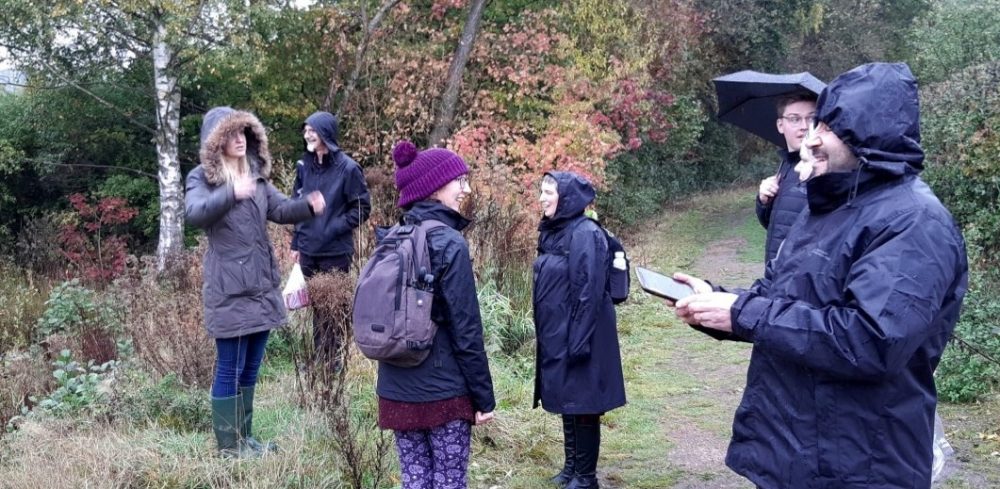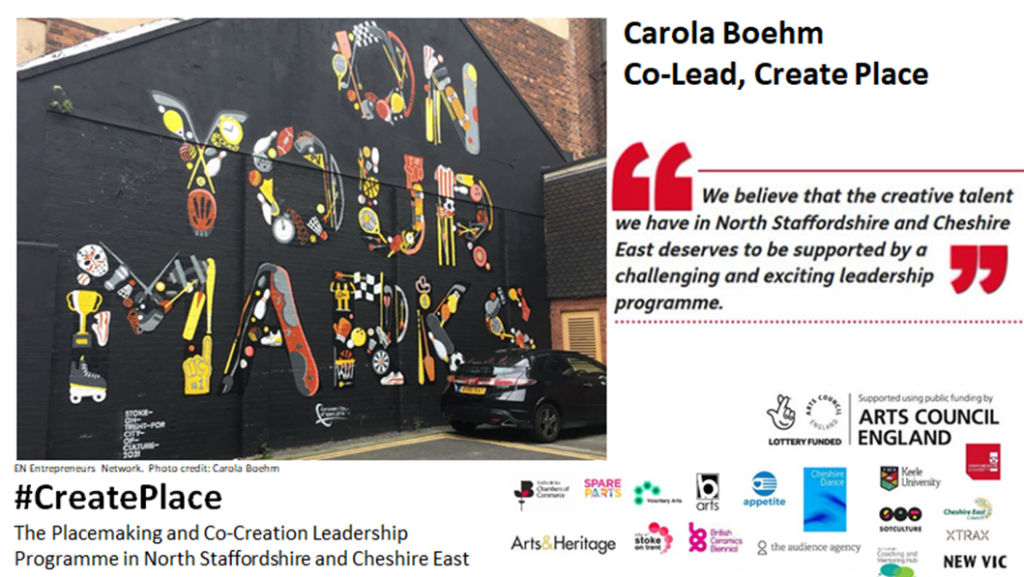This is the fourth in a special series of blog posts in which I talk to University of Staffordshire colleagues about their impactful public engagement activities. Introducing Dr Laura Walton-Williams, co-founder of the VAWG Hub.
- What is the VAWG Hub, how did it come about, and what is your role in it?
In 2022, Dr Em Temple-Malt and I undertook a piece of commissioned research for the Police and Crime Commissioner and Staffordshire Women’s Aid. We were looking at why underrepresented ethnicities were not using support services. Through conversations with lots of different organisations working on this issue, it became clear that there was a lack of up-to-date knowledge and co-ordination around existing services. Voluntary sector organisations lacked a forum to come together. There is a Rape and Serious Sexual Offences (RASSO) Group, but that is predominantly Police-led and involves only commissioned services. Voluntary sector services must target their resources towards service provision and are often competing for the funding and tenders available to support victims and survivors. So, we saw a role for ourselves and the university as an independent organisation who could develop a supportive network of organisations to share information and best practice. We hold in-person meetings at Staffordshire University every three months, since October 2022. We typically have 40-50 people at each meeting. Sessions usually include guest speakers, but we also allow a good hour at the start for networking and facilitated introductions over tea and coffee.
- What are the main challenges that your network addresses?
The VAWG Hub brings together individuals and organisations supporting victims of sexual and domestic abuse and violence across the region. Despite its title, we don’t exclude any gender and have previously focused on male victims. We aim to connect voluntary sector organisations with representatives from the justice system, such as the Police, the Police and Crime Commissioner’s Office, judges and solicitors. We also have attendees from the Staffordshire Violence Reduction initiative and from the education sector. Increasingly, our PhD researchers are finding it valuable to attend the meetings, building their wider networks and helping them to consider the real-world impact of their research.
The VAWG Hub’s activities have been developed in consultation with members. Meetings sometimes have a specific theme; for example, education, men and boys, and how we can better support ethnically diverse communities. In the last session, we had British Transport Police come and talk about their work addressing gender-based violence on transport networks. At another session, we heard from Whispers of Hope: a local charity supporting and protecting victims of domestic abuse or sex trafficking who have no recourse to public funds (e.g. due to their immigration status).
- Can you give some examples of how the VAWG Hub has made a difference?
The VAWG Hub provides immediate connections between organisations. Members can talk about the challenges that they are facing, to explore whether there is help available in the room or through wider signposting. This can be helpful when people are dealing with specific challenges around a particular case. In other cases, the connections are broader.
For example, Sexual Violence Liaison Officers in our Staffordshire University Student Support team attended the session with British Transport Police; they then invited the Transport Police to return in Fresher’s Week to speak to new students, many of whom will be regular commuters. When Whispers of Hope presented, potential volunteers came forward with offers of help.
The VAWG Hub also extends the impact of some of our Staffordshire University services and initiatives. For example, the Staffordshire University Legal Advice Clinic came and presented and offered to work with members. We also access specialist information and knowledge and share this at the meetings. This includes information about free online webinars and the latest research on VAWG. We identify funding opportunities and highlight other different types of organisations that members may not be aware of, such as social enterprises. We have a Linkedin profile where we share information, plus all the slides from the meetings, extending the reach of the impact beyond the in-person meetings.
We’ve recently partnered with Poppy Murray, a campaigner from Guernsey who started the BE LADS campaign in 2021, to raise awareness about women’s safety following the murder of Sarah Everard. Poppy got in touch as she felt that our work was well aligned with her campaign. She invited me to speak at a VAWG event in Guernsey, and we’re exploring further collaborations.
The VAWG Hub meetings are a valuable opportunity to share our research findings and to find out more about people’s research priorities. This can lead to new research projects, sometimes involving our students. We recently secured some internal participatory action research funding and have developed a creative research project with Staffordshire University’s Catherine Dineley, who works in Technical Services, and Andrew Watts, an artist, survivor and volunteer at SARAC (Sexual Assault and Rape Advice Centre). They have run creative workshops with people who have experienced sexual violence. This has resulted in a month-long exhibition in Burton-on-Trent in Summer 2024. This is just one example of how we are trying to include the voices of people with lived experience in the VAWG Hub.
- What do you think the future holds for the VAWG Hub and what does success look like?
The VAWG Hub is continually evolving, as we look for new ways to build on the connections. As part of the October meeting, we invited members to also come along to our Centre for Crime, Justice and Security Annual Conference, earlier in the day. We’ll continue to strengthen the involvement of people with lived experience, and to respond to people’s concerns and priorities, as well as the evolving political landscape. It’s easy for people to feel powerless when a problem is so endemic. So, part of our role is to enable voices to be heard by providing a platform, raising awareness, and linking with policymakers.
- How do you feel this contributes to Staffordshire Universities Connected Communities vision and strategy?
I feel that we align well. We’ve tried to be as inclusive as possible. And by holding the VAWG Hub meetings at the university, we can offer easy free parking and refreshments. We can also offer support such as the Legal Advice Clinic, Digital Marketing, media studios, and student placements. It’s all about connections, collaboration and elevating multiple voices to bring about positive change.
For further information, follow Staffordshire University VAWG Hub on Linkedin.





